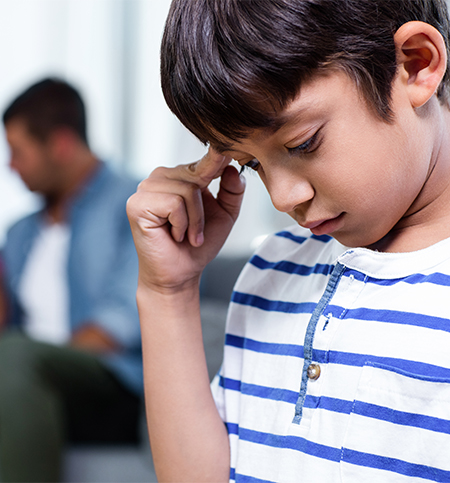 Conflicts can arise in a blended family.
Conflicts can arise in a blended family.
The disillusionment with blended families often begins with unmet expectations.
During the dating phase, bringing families together for fun outings to the zoo, an amusement park, or family dinners was fun. Everyone seemed happy while appearing to get along.
Things probably seemed to trek along steadily after the wedding. Everyone settled into the new school, jobs, and home.
Then, as if a volcano has erupted, you hear, “You are not my mom. You can’t tell me what to do.” “You are not my dad; I don’t have to listen to you.” Comments like these can begin to erode the foundation of the paradise.
The transition is a challenge for blended families.
While adults often focus on developing romantic relationships, the transition is often difficult for the children involved. Adjusting to new siblings and stepparents, or possibly continuing to hurt from the divorce or death of a biological parent, is not easy for children.
Many other stressors eat away at the new family dynamics: learning new rules, differing parenting styles, trading off with biological parents, possible relocation to new homes and schools, and making new friends. These things are often overwhelming for kids, causing them to feel lonely and resentful.
The struggle extends to the parent and stepparent. They might begin to feel their child is being left out or parented more harshly than biological children. Parents may feel their child appears less favored by the stepparent. The new couple may face dealing with children acting out and getting into trouble at school and home.
Dealing with conflicts and struggles with the transition is not easy; this is where family therapy can help.
 “Behavior communicates need!”
“Behavior communicates need!”
At the forefront of blended family therapy, we focus on the underlying reasons for the child’s behavior. Your child’s problematic behavior and challenging remarks are communicating an internal struggle.
The child tries to adjust but feels stunted by the parent’s ability to co-parent with their ex-spouse. Acceptance of stepparents might feel like the child is betraying a biological parent, causing the child to feel dysregulated.
During our blended family therapy sessions, you can participate from the comfort of your home. Using play therapy and a variety of modalities, we work with your family to separate the behavior from the feelings, building the relationships, trust, and connection that blended families desire.
Make the transition more manageable and less challenging. We can help you identify the problems, find solutions, and make everyone feel a part of this new family.
Contact me today for more information.

